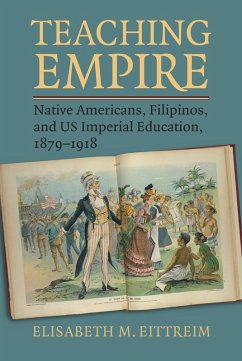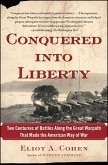At the turn of the twentieth century, the US government viewed education as one sure way of civilizing others under its swayamong them American Indians and, after 1898, Filipinos. Teaching Empire considers how teachers took up this task, first at the Carlisle Indian Boarding School in Pennsylvania, opened in 1879, and then in a school system set up amid an ongoing rebellion launched by Filipinos. Drawing upon the records of fifty-five teachers at Carlisle and thirty-three sent to the Philippinesincluding five who worked in both locationsthe book reveals the challenges of translating imperial policy into practice, even for those most dedicated to the imperial mission.
These educators, who worked on behalf of the US government, sought to meet the expectations of bureaucrats and supervisors while contending with leadership crises on the ground. In their stories, Elisabeth Eittreim finds the problems common to all classroomshow to manage students and convey knowledgecomplicated by their unique circumstances, particularly the military conflict in the Philippines. Eittreim's research shows the dilemma presented by these schools' imperial goal: pouring in knowledge that purposefully dismissed and undermined the values, desires, and protests of those being taught. To varying degrees these stories demonstrate both the complexity and fragility of implementing US imperial education and the importance of teachers' own perspectives. Entangled in US ambitions, racist norms, and gendered assumptions, teachers nonetheless exhibited significant agency, wielding their authority with students and the institutions they worked for and negotiating their roles as powerful purveyors of cultural knowledge, often reinforcing but rarely challenging the then-dominant understanding of civilization.
Examining these teachers' attitudes and performances, close-up and in-depth over the years of Carlisle's operation, Eittreim's comparative study offers rare insight into the personal, institutional, and cultural implications of education deployed in the service of US expansionwith consequences that reach well beyond the imperial classrooms of the time.
These educators, who worked on behalf of the US government, sought to meet the expectations of bureaucrats and supervisors while contending with leadership crises on the ground. In their stories, Elisabeth Eittreim finds the problems common to all classroomshow to manage students and convey knowledgecomplicated by their unique circumstances, particularly the military conflict in the Philippines. Eittreim's research shows the dilemma presented by these schools' imperial goal: pouring in knowledge that purposefully dismissed and undermined the values, desires, and protests of those being taught. To varying degrees these stories demonstrate both the complexity and fragility of implementing US imperial education and the importance of teachers' own perspectives. Entangled in US ambitions, racist norms, and gendered assumptions, teachers nonetheless exhibited significant agency, wielding their authority with students and the institutions they worked for and negotiating their roles as powerful purveyors of cultural knowledge, often reinforcing but rarely challenging the then-dominant understanding of civilization.
Examining these teachers' attitudes and performances, close-up and in-depth over the years of Carlisle's operation, Eittreim's comparative study offers rare insight into the personal, institutional, and cultural implications of education deployed in the service of US expansionwith consequences that reach well beyond the imperial classrooms of the time.
Dieser Download kann aus rechtlichen Gründen nur mit Rechnungsadresse in A, D ausgeliefert werden.









